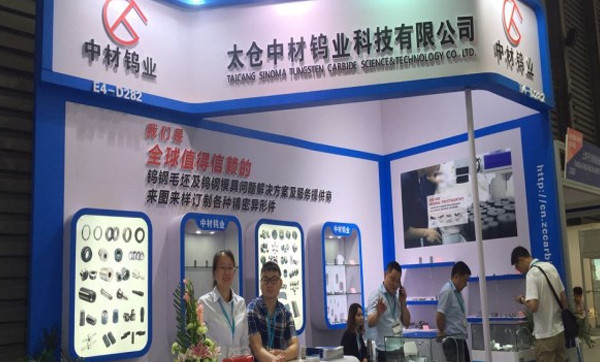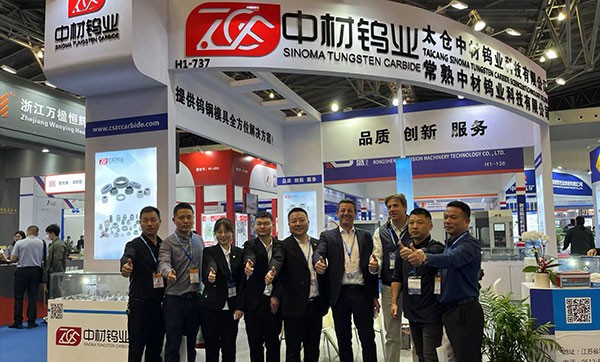In the highly competitive manufacturing sector, precision and reliability are non-negotiable for industries relying on tungsten carbide molds. tungsten carbide (also known as cemented carbide) molds are widely used in high-stakes applications, including automotive parts production, aerospace components, and electronics manufacturing, where dimensional accuracy and durability are critical. To meet these demands, implementing a comprehensive Quality Management System (QMS) is not merely an option—it is a strategic imperative. This article explores how a well-structured QMS enhances tungsten carbide mold production, driving operational excellence, customer satisfaction, and long-term business success.
Tungsten carbide molds require exceptional hardness, wear resistance, and thermal stability. Even minor deviations in material composition, sintering processes, or machining tolerances can lead to catastrophic failures in end-use applications. A robust QMS establishes standardized procedures for every stage of production—from raw material inspection to final product testing. By enforcing strict process controls, statistical process monitoring (SPC), and calibration protocols, manufacturers ensure that each mold meets exact specifications. For instance, automated inspection systems integrated into the QMS can detect micron-level deviations in mold geometry, preventing defective outputs and rework.
The high cost of tungsten carbide raw materials and energy-intensive production processes make waste reduction a priority. A QMS minimizes material waste by identifying inefficiencies early. Root cause analysis tools like Six Sigma or Failure Mode and Effects Analysis (FMEA) help address recurring defects, while real-time data tracking optimizes resource allocation. For example, predictive maintenance schedules under a QMS framework reduce unplanned downtime in CNC machining centers, ensuring uninterrupted production and lowering operational costs.
In industries where mold failure can halt assembly lines or compromise product safety, reliability is a key differentiator. A certified QMS (e.g., ISO 9001) signals to clients that the manufacturer adheres to globally recognized quality standards. Documented traceability—such as lot tracking and material certifications—builds transparency, enabling clients to verify quality at every step. Over time, this fosters long-term partnerships and positions the company as a leader in precision mold manufacturing.
Tungsten carbide molds often serve regulated industries like medical device manufacturing or defense, where compliance with stringent standards (e.g., AS9100, IATF 16949) is mandatory. A QMS ensures adherence to these requirements through systematic documentation, audit readiness, and continuous monitoring. This mitigates legal risks and avoids costly recalls or penalties.
A dynamic QMS fosters a culture of Kaizen (continuous improvement). By analyzing quality metrics and customer feedback, manufacturers can iteratively refine processes. For instance, adopting advanced technologies like AI-driven defect detection or additive manufacturing for complex mold geometries becomes feasible within a QMS framework. Employees trained in quality principles also contribute innovative solutions, enhancing overall productivity.
Streamlined workflows under a QMS reduce bottlenecks. Digital tools like Enterprise Resource Planning (ERP) systems integrated with QMS modules enable real-time collaboration between design, production, and quality teams. This agility allows manufacturers to respond swiftly to custom orders or design changes without compromising quality—a critical advantage in fast-paced industries.
A QMS proactively addresses risks, from supply chain disruptions to environmental impacts. For example, sustainable sourcing of tungsten and recycling of scrap materials can be embedded into quality protocols, aligning with ESG (Environmental, Social, Governance) goals. Risk assessments also ensure business continuity, safeguarding against unforeseen disruptions.
In tungsten carbide mold production, a robust Quality Management System transcends mere compliance—it becomes the backbone of operational excellence. By ensuring precision, reducing costs, and building customer confidence, a QMS transforms quality from a checkpoint into a competitive asset. As industries increasingly demand smarter, faster, and more reliable solutions, manufacturers equipped with a mature QMS will not only survive but thrive in the global marketplace. Investing in quality today is an investment in tomorrow’s innovation and leadership.
Because of this, ZCCF Tungsten Carbide has adhered to this robust Quality Management System since its establishment.




